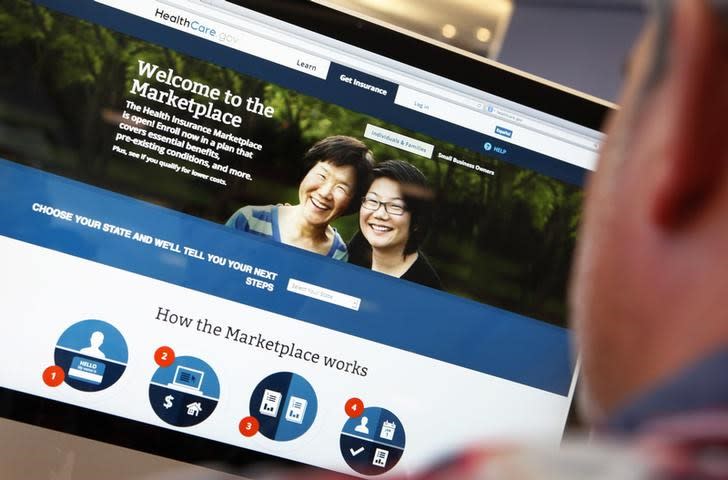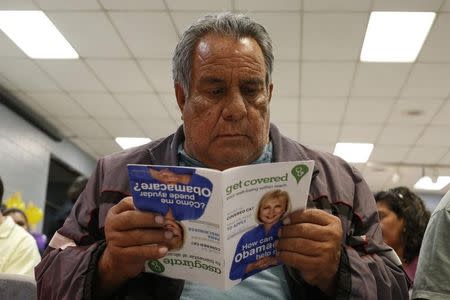Obamacare to save U.S. hospitals $5.7 billion in uncompensated care: government
By David Morgan and Roberta Rampton WASHINGTON (Reuters) - The Obama administration on Wednesday said it expects expanded health coverage under the Affordable Care Act to save U.S. hospitals $5.7 billion this year on the cost of caring for uninsured Americans. A report by the U.S. Department of Health and Human Services said nearly three-quarters of the savings, $4.2 billion, would occur in states that have opted to expand the Medicaid healthcare program for the poor as part of the law, popularly known as Obamacare. The data may help hospitals press for Medicaid expansion in the 23 states whose governors have not agreed to it, said Health and Human Services Secretary Sylvia Mathews Burwell. “We’re now at a phase where we’re actually going to start seeing the benefits” of expansion, Burwell told reporters. “It’s actually showing that this provides benefits to states.” The report is the latest in a series of administration releases intended to show that President Barack Obama's healthcare reform law is working. Wednesday's announcement came weeks before the November mid-term elections, in which Republicans hope voter dislike for the Affordable Care Act will aid their efforts to win control of the U.S. Senate. Reducing the cost of "uncompensated care" among hospitals, particularly those with large populations of poor people, is a major goal of Obamacare, which offers federally subsidized private insurance to consumers in addition to expanding Medicaid. Overall, 10.3 million uninsured Americans have gained coverage since the law's enrollment provisions took effect a year ago, according to researchers. The Medicaid expansion, which extends coverage to nearly everyone living near the federal poverty line, has been seen as the main vehicle for reducing uncompensated care for the poor. But only 27 of the 50 U.S. states have agreed to expand the program so far, leaving millions without coverage in the other states. Burwell said she continues to talk to governors to try to convince them to expand the program, but she told reporters that the positive experience in states that have already made the change is likely to be a bigger influence. “I think the more that we are able to attract conservative Republican governors, the more that those who have very strong feelings will perhaps listen,” said Burwell, who worked with Pennsylvania’s Republican Governor Tom Corbett to expand the program in his state in August. “They all talk to each other,” she said. (Reporting by David Morgan and Roberta Rampton; Editing by Steve Orlofsky)


